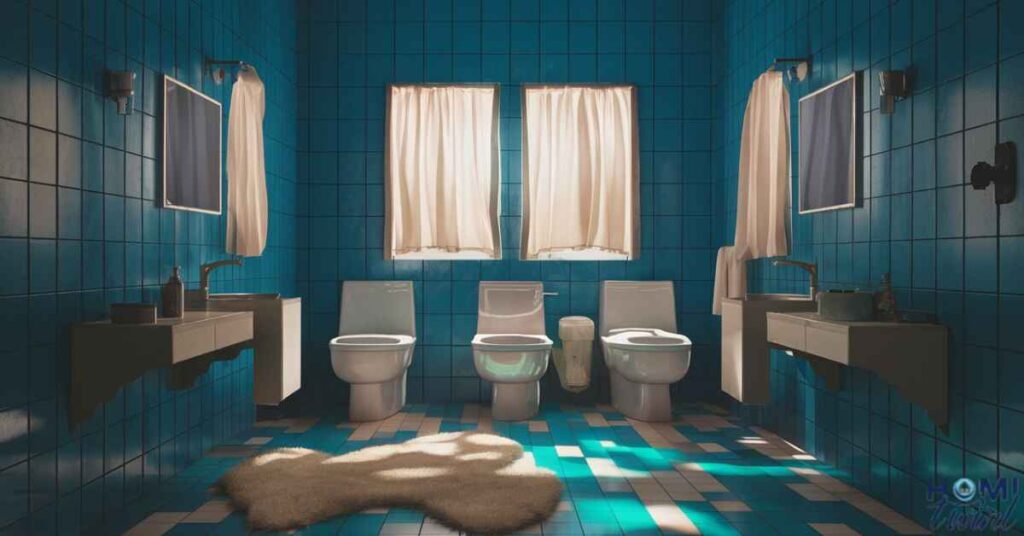Dealing with a bathroom that smells like a sewer is unpleasant and can signal underlying plumbing problems.
The most common culprits include dry P-traps, clogged shower drains, damaged toilet wax rings or cracks, blocked vent pipes, bacterial growth, full septic tanks, and sewer backups. Fortunately, many of these issues can be resolved with simple DIY solutions like refilling P-traps, unclogging drains, or applying bleach.
However, more complex problems may require professional assistance from licensed plumbers to properly diagnose and repair the source of the sewage odor.
7 Reasons Why Your Bathroom Smells Like a Sewer (And How to Fix It)
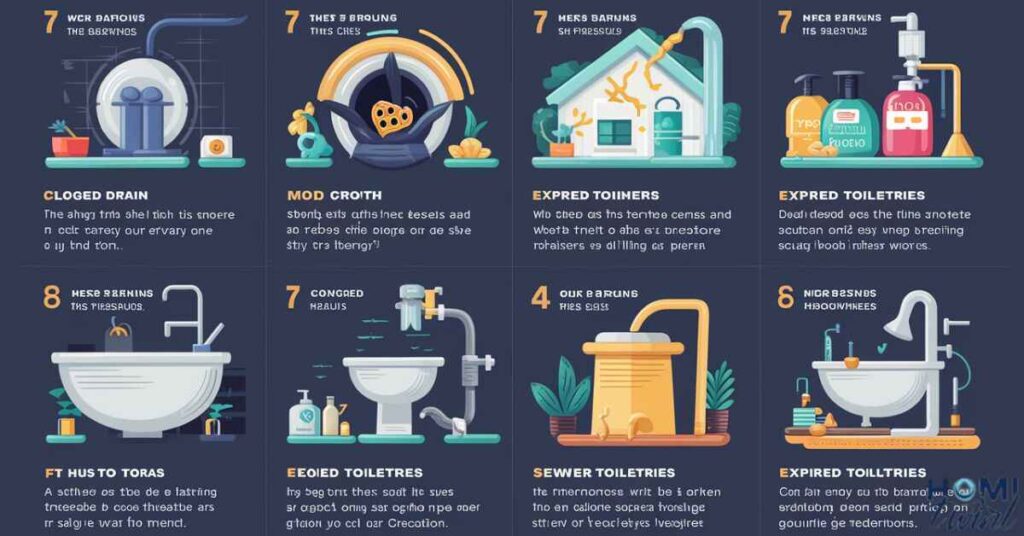
There’s nothing worse than entering your bathroom and being greeted by a foul, sewage-like odor. Not only is it unpleasant, but it can also indicate underlying plumbing issues that need prompt attention. If you’ve been wondering, “Why does my bathroom smell like a sewer?” This comprehensive guide will explore the common culprits and provide practical solutions to help you regain a fresh, odor-free sanctuary.
1. The Dried-Out P-Trap Culprit
Every bathroom sink, shower, and toilet has a U-shaped pipe called a P-trap. Its purpose is to hold a small amount of water, creating a barrier that prevents sewer gas from escaping through the drain and entering your living space. However, if you don’t use a particular fixture for an extended period, the water in the P-trap can evaporate, leaving an open pathway for those unpleasant odors to seep through.
Read This Blog: MY PARTNER OWNS THE HOUSE – WHAT RIGHTS DO I HAVE?
The Simple Solution: Fortunately, fixing a dry P-trap is a breeze. Simply turn on the faucet or flush the toilet, allowing fresh water to refill the P-trap. You can also pour a cup of water directly into the drain to replenish the water barrier. Consider this a quick fix, but be mindful of infrequently used fixtures, as the P-trap can dry out again over time.
2. Clogged Shower Drains: A Smelly Nuisance
Have you noticed a foul smell emanating from your shower drain, accompanied by slow drainage or minor flooding? If so, you’re likely dealing with a shower drain clog. Over time, hair, soap scum, and other debris can accumulate, creating a stubborn blockage that prevents proper drainage and allows sewer gasses to escape.
The DIY Solution:
- Remove the shower drain cover and set it aside.
- Pour a mixture of white vinegar and hot water down the drain, followed by a cup of baking soda. Let it sit for at least an hour to work its magic.
- Use a drain brush or plunger to dislodge any remaining buildup.
- Flush the drain with hot water to rinse away any residual debris.
- Replace the drain cover.
If the clog persists or recurs frequently, it may be time to call in a professional plumber for a more thorough cleaning or potential replacement of the drain line.
3. The Wax Ring Woes: A Damaged Toilet Seal
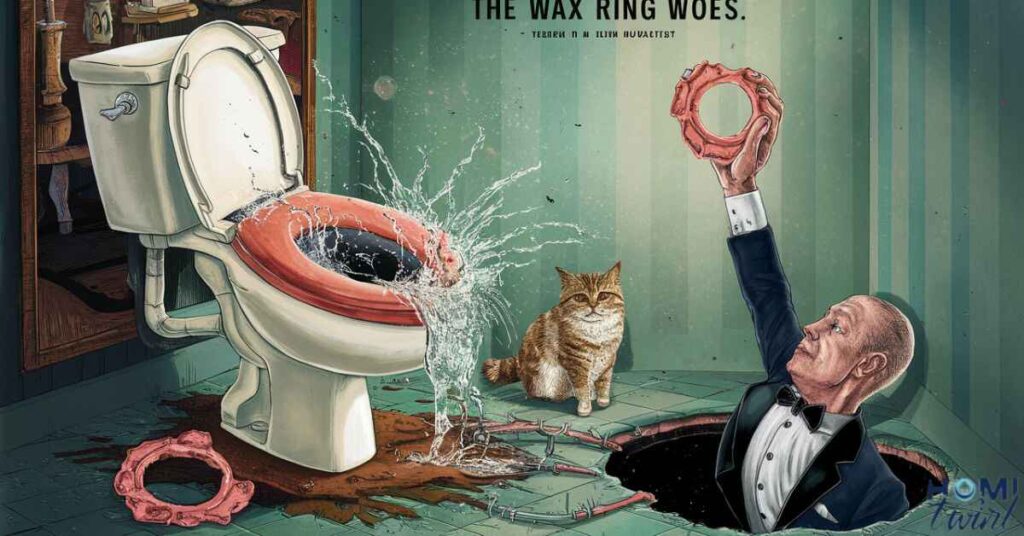
The wax sealing at the base of your toilet acts as a barrier, preventing sewer gasses from seeping out. However, over time, this wax ring can become compromised due to wear and tear, allowing those unpleasant odors to escape into your bathroom.
Also Read This Blog: HOW TO ADD CABINET DOORS
Additionally, cracks in your toilet bowl or a drop in water levels can also contribute to sewage smells. Low water levels in the toilet’s P-trap create an open pathway for sewer gasses to enter your living space.
Professional Assistance Required: If you suspect a damaged wax ring or cracked toilet bowl, it’s best to seek the expertise of a licensed plumber. These issues require specialized tools and techniques to properly diagnose and repair, ensuring a long-lasting and odor-free solution.
4. Blocked Vent Pipes: The Sewer System’s Breather
Your home’s plumbing system relies on vent pipes to regulate air pressure and allow sewer gasses to escape safely outside. When these vents become clogged or blocked, the gasses can back up into your bathroom fixtures, resulting in an unpleasant sewage odor.
Potential causes of blocked vent pipes include:
- Improper installation
- Debris or objects obstructing the pipe
- Nesting birds or small animals
- Deterioration or damage to the vent pipe
The Troubleshooting Steps:
- Locate the vent pipe on your roof or exterior wall.
- Inspect for any visible blockages or obstructions.
- Use a plumber’s snake or compressed air to try and dislodge the clog.
- If the blockage persists, or the vent pipe appears damaged, it’s time to call a professional plumber for a comprehensive assessment and repair.
5. Bacterial Build-Up: A Smelly Nuisance
Bathrooms provide the perfect warm, moist environment for bacteria buildup, especially in areas like the toilet bowl and drain pipes. As these bacteria multiply, they can produce foul-smelling gasses, contributing to an unpleasant sewage odor.
The Bleach Solution:
- Pour a cup of household bleach into the toilet tank and let it sit for a few hours before flushing.
- For drains, mix equal parts bleach and water, and pour the solution down the drain. Let it sit for at least an hour before flushing with hot water.
- Repeat this process regularly to prevent bacterial growth and maintain a fresh-smelling bathroom.
An ounce of prevention is worth a pound of cure. – Benjamin Franklin
Keeping your bathroom clean and disinfected can go a long way in preventing bacterial buildup and the associated odors.
6. The Full Septic Tank Dilemma
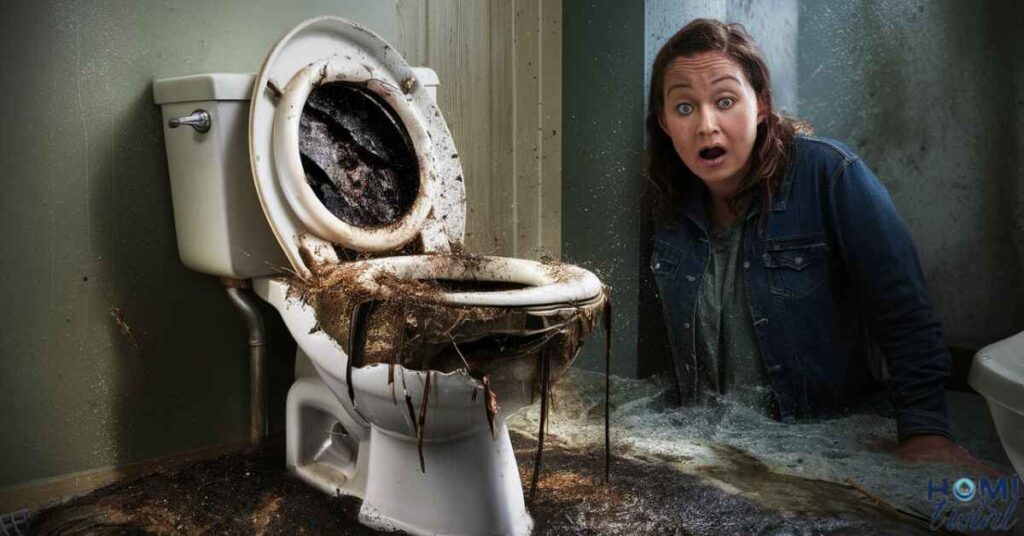
If your home is connected to a septic tank instead of a municipal sewer system, a full tank can be the source of your bathroom’s sewage smell. When the septic tank reaches capacity, it can cause sewage to back up into your plumbing lines, resulting in unpleasant odors, bubbling sounds, and sluggish drain performance.
The Solution: Regular septic tank inspections and pumping are crucial to prevent this issue. Most experts recommend having your septic tank pumped every 3-5 years, depending on the size of your tank and household usage.
Signs Your Septic Tank Needs Pumping:
- Strong sewage odors
- Slow draining sinks, tubs, or toilets
- Gurgling sounds from drains
- Lush, green grass over the septic tank area (indicating a leak)
If you notice any of these signs, it’s time to schedule a septic tank pumping with a professional service provider.
7. Sewer Backups: When Nature Calls (On Your Plumbing)
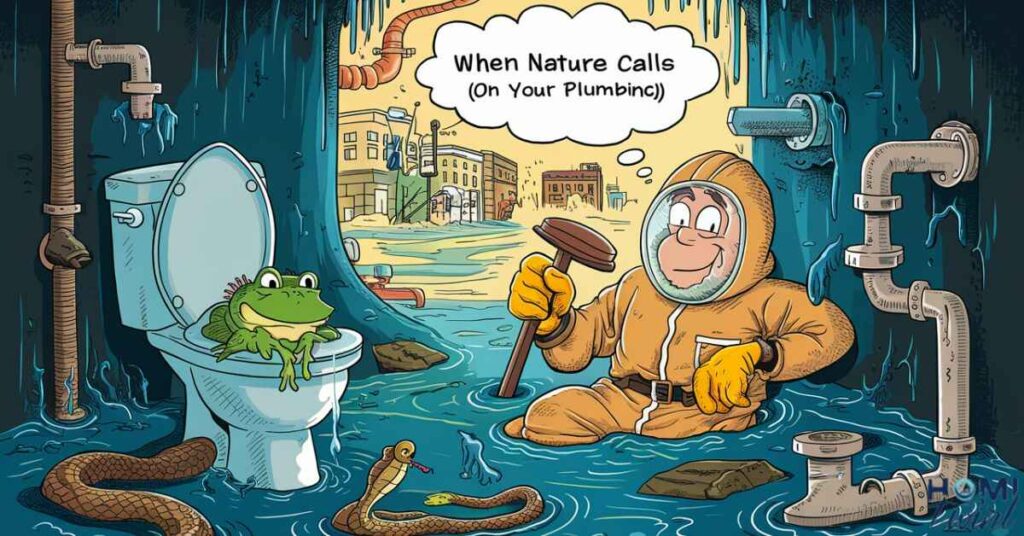
Heavy rainfall or melting snow can overwhelm municipal sewer systems, causing a backup of sewage into residential plumbing lines. This can lead to sewer backups and the unpleasant odor of sewage in your bathroom and other areas of your home.
While this issue is often out of your control, there are preventative measures you can take:
- Install a backflow valve on your sewer line to prevent sewage from backing up into your home.
- Ensure your plumbing vents are clear and functioning properly to help alleviate pressure during a sewer backup.
- Consider installing a sump pump or floor drain backup system to remove any sewage that does manage to enter your home.
If you experience a sewer backup, it’s essential to act quickly and call a professional plumbing service to address the issue and prevent further damage or health hazards.
Case Study: The Smith Family’s Sewer Odor Saga
The Smith family had been dealing with a persistent sewage smell in their upstairs bathroom for months. They tried various DIY solutions, such as pouring bleach down the drains and flushing the toilet regularly, but the odor persisted.
Finally, they decided to call Gallagher’s Plumbing, Heating and Air Conditioning in Sacramento, CA, for assistance. After a thorough inspection, the technician discovered that the issue was a combination of a dry P-trap in the rarely used guest bathroom sink and a partially blocked vent pipe.
The technician quickly refilled the P-trap and used a plumber’s snake to clear the vent pipe obstruction. Within a matter of hours, the persistent sewage odor had dissipated, leaving the Smiths with a fresh, odor-free bathroom once again.
We’re so grateful to Gallagher’s Plumbing for their expertise and prompt service,” said Mrs. Smith. “Not only did they resolve our sewer smell issue, but they also provided valuable advice on maintaining our plumbing system to prevent future problems.
Frequently asked question
What causes a sewer smell in the bathroom?
Sewer smells in the bathroom can be caused by various factors such as dry P-traps, blocked vent pipes, faulty wax seals, or leaking sewer pipes.
How do I fix a sewer smell in my bathroom?
To fix a sewer smell, you can try running water down drains to refill P-traps, checking for and removing any blockages in vent pipes, replacing faulty wax seals under toilets, or repairing any leaking sewer pipes.
Why does my bathroom smell like sewage only sometimes?
A sewer smell in the bathroom might be intermittent if it’s caused by a dry P-trap that only loses water over time when drains aren’t used frequently. Running water down the drains regularly can prevent this issue.
Is a sewer smell in the bathroom dangerous?
While a sewer smell in the bathroom is unpleasant, it’s usually not dangerous in itself. However, it can indicate underlying issues like leaking pipes that may need attention to prevent further damage or health hazards.
Can cleaning products cause sewer smells in the bathroom?
Some cleaning products, particularly those containing bleach or ammonia, can react with organic matter in drains and produce foul odors. Using these products in combination with water can sometimes exacerbate sewer smells.
When should I call a professional plumber about a sewer smell in my bathroom?
If you’ve tried basic troubleshooting steps and the sewer smell persists, or if you suspect a more serious issue like a leaking sewer pipe, it’s advisable to call a professional plumber. They can conduct a thorough inspection and address the problem effectively.
Conclusion
A persistent sewage smell in your bathroom is not only unpleasant but can also indicate serious plumbing issues that demand prompt attention. From dry P-traps and clogged drains to damaged toilet seals, blocked vent pipes, bacterial buildup, full septic tanks, and sewer backups, identifying and addressing the root cause is crucial.
While simple DIY fixes like running water, unclogging drains, or applying bleach can resolve some problems, more complex issues may require the expertise of a licensed plumber. Don’t let a foul-smelling bathroom ruin your peace of mind – take action to restore a fresh, odor-free environment. Investing in regular maintenance and seeking professional help when needed can save you from costly repairs and ensure a healthy, comfortable living space.

